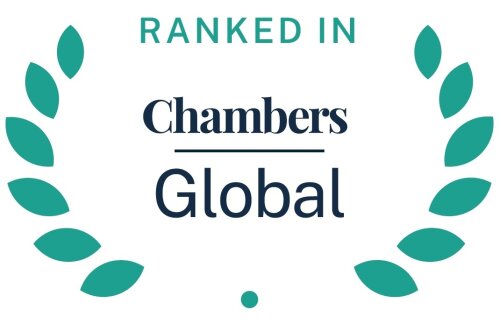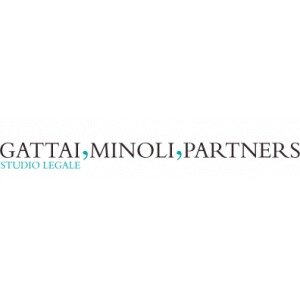Best Renewable & Alternative Energy Lawyers in Italy
Share your needs with us, get contacted by law firms.
Free. Takes 2 min.
Or refine your search by selecting a city:
List of the best lawyers in Italy
About Renewable & Alternative Energy Law in Italy
Italy has long been at the forefront of renewable and alternative energy policies in Europe. With its favorable climate and geography, the country has invested in various sources such as solar, wind, hydroelectric, and geothermal energy. Legislative frameworks encourage sustainable development and the transition from fossil fuels to greener alternatives. Italian law aligns with European Union directives, aiming to increase the share of renewables in the energy mix and reduce environmental impact. The government has established incentives, regulatory schemes, and strict permitting processes to encourage both large-scale and small-scale renewable energy projects.
Why You May Need a Lawyer
Navigating the legal landscape for renewable and alternative energy in Italy can be complex. Whether you are an individual installing solar panels at your residence, a business planning a wind park, or an investor interested in green energy projects, various legal challenges may arise. Common situations where legal help is valuable include:
- Understanding and applying for government incentives or tax credits
- Obtaining permits and authorizations for construction and operation
- Negotiating power purchase agreements or contracts with suppliers and distributors
- Complying with zoning and environmental regulations
- Resolving disputes surrounding land use, grid connection, or utility access
- Dealing with changes in policy or incentives that may impact existing investments
- Ensuring compliance with both Italian and EU laws for cross-border projects
Local Laws Overview
Italian renewable and alternative energy laws are shaped by national legislation as well as European Union directives. The principal regulatory framework includes the National Energy and Climate Plan and various decrees such as Legislative Decree 28/2011, which incorporates EU targets and rules for renewable energy. Key aspects of the legal environment include:
- Incentives: Various incentives exist, including feed-in tariffs, tax deductions, and grants. These change periodically as national budgets and policies are updated.
- Permitting: Projects must comply with zoning rules, environmental impact assessments, and municipal authorizations. Certain small installations may benefit from simplified procedures.
- Market Access: Producers must negotiate grid connections and may sell energy through regulated or free market channels.
- Sustainability Requirements: All projects must meet technical, safety, and environmental standards. Large projects may be subject to public consultation and review.
- Net Metering and Self-Consumption: There are specific rules for self-consuming generated energy, particularly for residential and collective systems.
Italian regional governments can set additional rules, so requirements may vary by location.
Frequently Asked Questions
What are the most common types of renewable energy in Italy?
The main renewable energy sources in Italy are solar (photovoltaic), wind, hydroelectric, geothermal, and biomass. Solar energy is particularly popular due to Italy's sunny climate.
Do I need a permit to install solar panels on my home?
In general, small-scale rooftop solar panels for residential use benefit from simplified permitting. However, you must still comply with building codes and may need to notify the local municipality. Larger or integrated systems may require additional permits.
Are there government incentives for installing renewable energy systems?
Yes, multiple incentives exist, such as tax deductions (Superbonus 110 percent), grants, and feed-in tariffs. The details and availability change periodically, so professional advice is recommended.
What is the process for connecting a renewable energy system to the grid?
Grid connection requires submitting technical information and an application to the local energy distributor. There are strict technical standards, and sometimes an inspection is required before connection is authorized.
Can I sell surplus energy back to the grid?
Yes, net metering schemes and market-based approaches allow you to sell surplus energy. The specific rules and rates depend on the size of your system and local policies.
Are environmental impact assessments required for renewable energy projects?
For large projects, especially in wind and hydro, an environmental impact assessment is usually mandatory. Smaller or residential installations typically have lighter requirements.
Is it possible for communities or groups to set up shared renewable energy projects?
Yes, energy communities and collective self-consumption are promoted by recent Italian and EU law. Specific regulations govern organizational form and benefit allocation.
What regulations exist for offshore wind energy in Italy?
Offshore wind projects must comply with marine spatial planning, environmental protection rules, and obtain several permits from national and local authorities.
How are disputes over land use or property rights for renewable projects resolved?
Disputes may be handled through negotiation, mediation, or litigation. Due diligence and clear contracts are important to prevent such issues.
What legal changes are expected in the near future?
Italy regularly updates its laws to meet evolving EU targets. Changes may include new incentives, streamlined permitting, and further support for emerging technologies like green hydrogen.
Additional Resources
If you are seeking legal advice or more information about renewable and alternative energy in Italy, the following resources can be helpful:
- GSE - Gestore dei Servizi Energetici: National body managing incentives and market access for renewable energy
- Ministry of Environment and Energy Security: Main governmental body for energy policy and environmental regulation
- ARERA - Regulatory Authority for Energy, Networks and Environment: Supervises energy markets and consumer protection
- ENEA - National Agency for New Technologies, Energy and Sustainable Economic Development: Provides technical research and advice
- Regional Energy Offices: Support with local authorizations and regional incentives
- Chamber of Commerce: Can provide information on business registration for energy projects
Next Steps
If you need legal assistance in renewable and alternative energy in Italy, consider the following steps:
- Identify your specific needs and goals, such as installing a system, starting a project, or seeking incentives.
- Gather all relevant documentation, such as property deeds, technical plans, and previous correspondence with authorities.
- Consult official resources or advisory bodies for initial guidance.
- Contact a specialized lawyer experienced in renewable and alternative energy law. They can help you understand your rights, comply with regulations, and handle applications or disputes.
- Follow your lawyer's guidance throughout the permitting, contracting, or claims process.
- Stay informed about updates in Italian and EU energy policies.
Getting legal support ensures your renewable energy initiative is compliant, efficient, and protected under Italian law.
Lawzana helps you find the best lawyers and law firms in Italy through a curated and pre-screened list of qualified legal professionals. Our platform offers rankings and detailed profiles of attorneys and law firms, allowing you to compare based on practice areas, including Renewable & Alternative Energy, experience, and client feedback.
Each profile includes a description of the firm's areas of practice, client reviews, team members and partners, year of establishment, spoken languages, office locations, contact information, social media presence, and any published articles or resources. Most firms on our platform speak English and are experienced in both local and international legal matters.
Get a quote from top-rated law firms in Italy — quickly, securely, and without unnecessary hassle.
Disclaimer:
The information provided on this page is for general informational purposes only and does not constitute legal advice. While we strive to ensure the accuracy and relevance of the content, legal information may change over time, and interpretations of the law can vary. You should always consult with a qualified legal professional for advice specific to your situation.
We disclaim all liability for actions taken or not taken based on the content of this page. If you believe any information is incorrect or outdated, please contact us, and we will review and update it where appropriate.
Browse renewable & alternative energy law firms by city in Italy
Refine your search by selecting a city.
















